
10 Things to Give Up to Enjoy Chess Fully
Discover how embracing a lighter mindset can help you enjoy chess again and achieve better results.We all started because of the LOVE for the game, but over time, we often get caught up in ratings, rankings, and external goals.
What if we could give up all the pressure and rediscover the pure joy chess once gave us? Maybe that joy will bring not only happiness but also the results we’ve been chasing...?
Here are the 10 things to give up:
1. Give Up Playing When You Don’t Want
You lose a game. Someone inside screams, “One more!”
You’re tilting, angry, and convinced the universe owes you a win. So you play again — and lose. And again. Before you know it, you’re trapped in a vicious cycle: bad game, tilt, worse game, tilt harder.
Each loss steals a little bit of your confidence and love for the game, until even your next session starts on shaky ground.
The smarter move? Step away. Reset. Come back when your Heart, Body, and Soul want to play chess again.

2. Give Up Chasing Your Rating
Goals are necessary — they give you direction. But when you obsess over them, you miss the entire journey.
Chasing a higher rating is like hiking a mountain and only staring at the summit. You forget to enjoy the view, the fresh air, and the thrill of the climb.
The trick? Detach yourself from the numbers. Focus on growth, not the rating. When you pour your energy into learning, improving, and enjoying the game, the rating takes care of itself. The climb is where the magic happens.
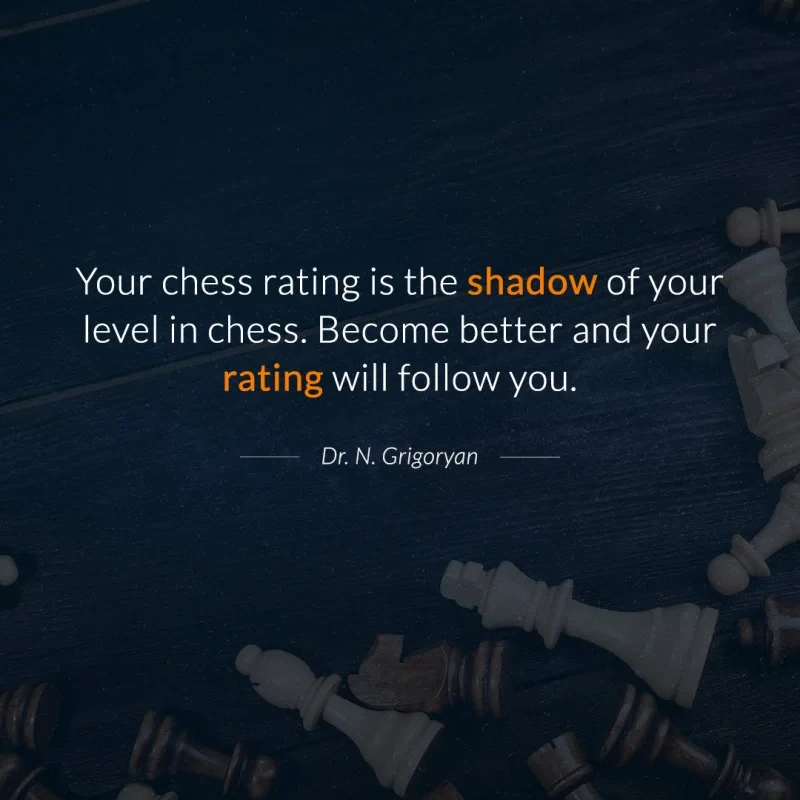
3. Give Up Being Overcompetitive
Top players are fiercely competitive, no doubt about it.
But the happiest ones don’t let that drive overshadow their love for the game. They channel their energy into curiosity and growth, focusing on mastery rather than obsessing over every win and loss.
Being competitive isn’t the problem — it’s when it becomes your entire focus that happiness fades. When every game feels like life or death, chess stops being fun.
Compete with passion, but don’t let it consume you or define your happiness.
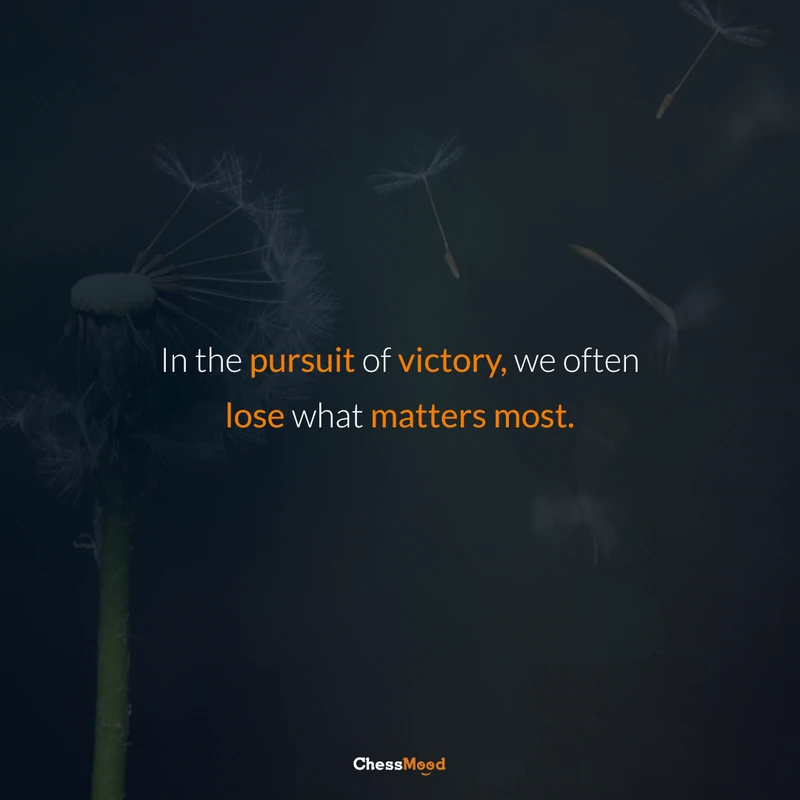
4. Give Up Fear of Losing
What’s worse than losing? Playing scared. Fear of losing turns chess into a prison — you avoid risks, ignore opportunities, and stick to the same old safe moves. The irony? Playing not to lose often guarantees you’ll lose anyway.
But here’s the truth: losing is part of the process. And losing isn’t failure; it’s feedback.
Every loss is a stepping stone to becoming a better player.
And the path to that growth? It’s not playing safe — it’s daring to lose.
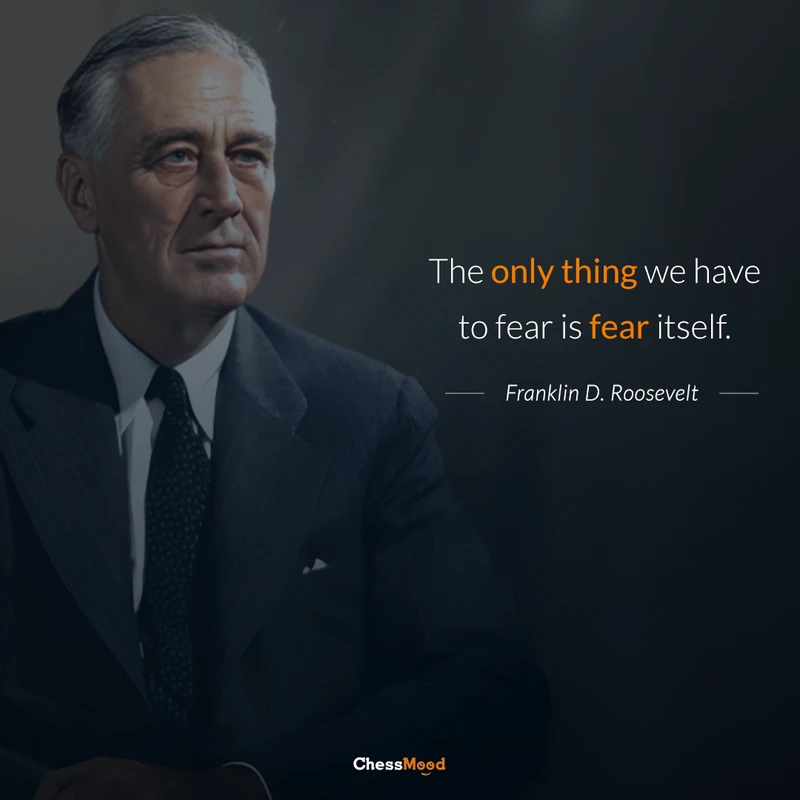
5. Give Up the Past
The past has a sneaky way of shaping how we see ourselves.
You blundered before, so you assume you’ll blunder again. You lost winning positions, and now you expect history to repeat itself.
But here’s the truth: the past doesn’t exist anymore. It’s not a prediction of your future — it’s just a place to take lessons.
Leave the baggage behind, take the wisdom, and play like the future is yours to create. Because it is.
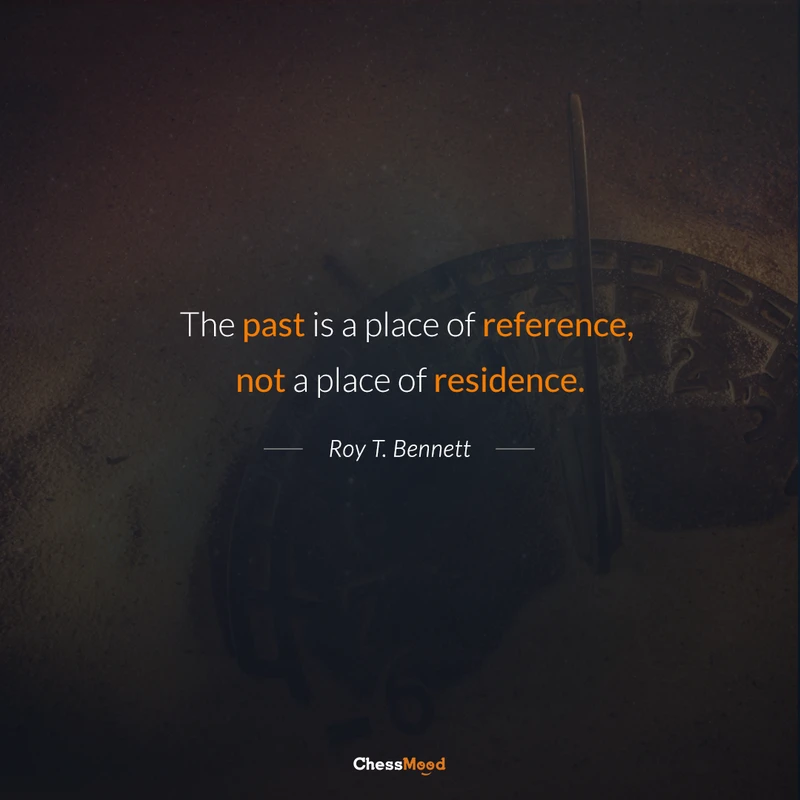
6. Give Up Negative Self-Talk
You lost a winning position, and the voice kicks in: “Unbelievable! You’re such an idiot. How could you let that happen?”
But would you ever speak to a friend that way? If not, why let that harsh voice talk to you like that?
Negative self-talk doesn’t make you stronger; it just drags you down.
Instead, be your own coach. Replace “I’m an idiot” with “What’s the lesson here?”
Growth and happiness don’t come from tearing yourself down — they come from building yourself up.

7. Give Up Comparing Yourself to Others
You win, you play great, your rating goes up — you’re happy. But then you see someone else. They gained more, won bigger, and climbed higher.
Suddenly, your success feels small. Comparison has stolen your joy.
But here’s the thing: someone ahead of you likely sacrificed more than you know. Maybe they’ve worked harder or walked a path you wouldn’t choose.
Don’t let their story overshadow yours. You don’t know their whole story — and you don’t need to. Focus on writing yours.
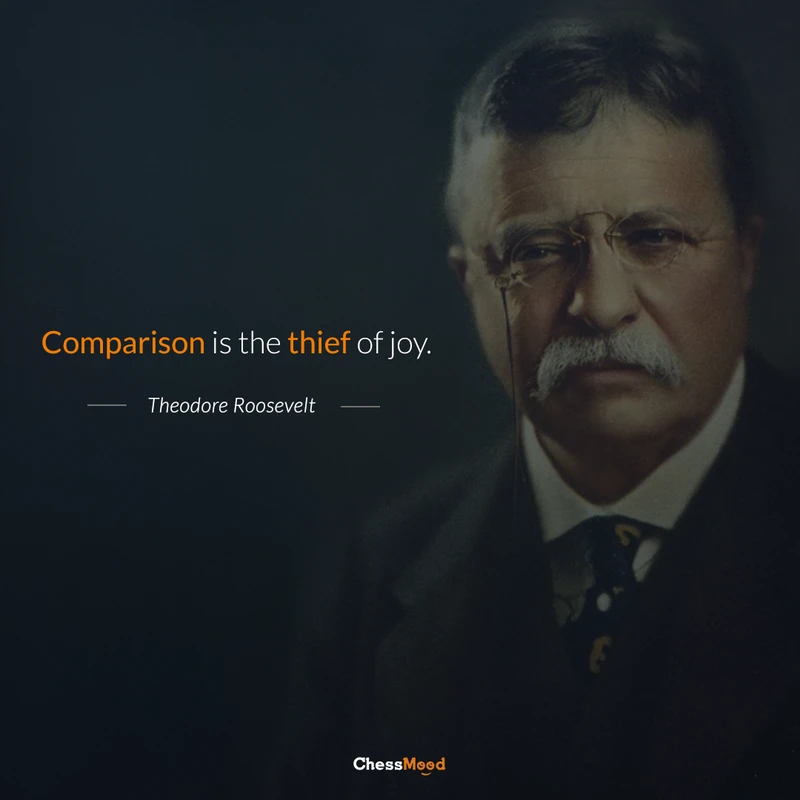
8. Give Up Caring What Others Think
You win a game and glance around — waiting for the applause. Or worse, you lose, and all you can think about is what others will say. Caring about others’ opinions is like giving them the keys to your happiness.
Criticism, compliments, applause — it’s all noise unless it’s from someone who truly matters, like a coach or a mentor.
Feedback from the right people helps you grow; feedback from the wrong ones just distracts you.
Focus on becoming better than you were yesterday. That’s the only applause you need — and it always sounds best when it comes from your own hands.

9. Give Up Your Ego
The ego has one fatal flaw — it’s never satisfied. Win, and it demands more. Lose, and it spirals into excuses, blame, and self-doubt. It ties your happiness to outcomes, trapping you in anxiety over losses and arrogance in victory.
But true happiness in chess, like in life, comes from presence — not letting your self-worth depend on a result or how others see you. When you let go of ego, you play freely, without fear or judgment.
Ego is the enemy of happy chess because it pulls you out of the moment and makes you play for the wrong reasons.
Silence your ego, and you’ll discover the true flavor of happy chess.
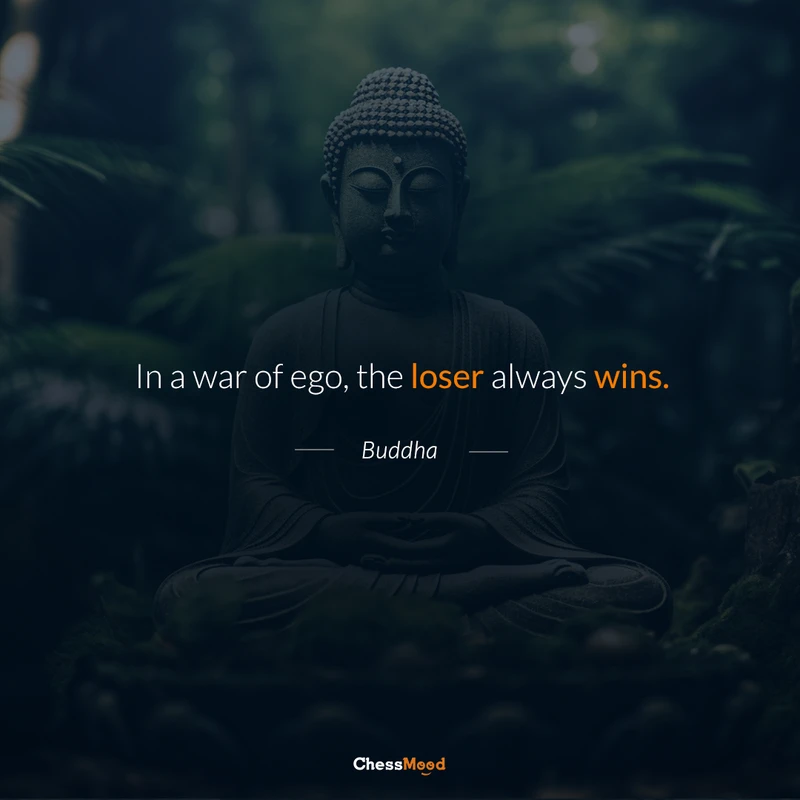
10. Give Up Listening to Everyone
Advice comes from all corners, even from people who are stuck in their journey and never found joy in the game.
“Analyze every loss for three hours!”
“Do two hours of tactics every day!”
“Forget openings — endgames are all that matter!”
Sounds familiar, right?
But just because someone has an opinion doesn’t mean it’s worth following.
Trust people you trust. Listen to those who’ve walked the talk, who’ve improved themselves and helped others. And most importantly, trust those who are happy.
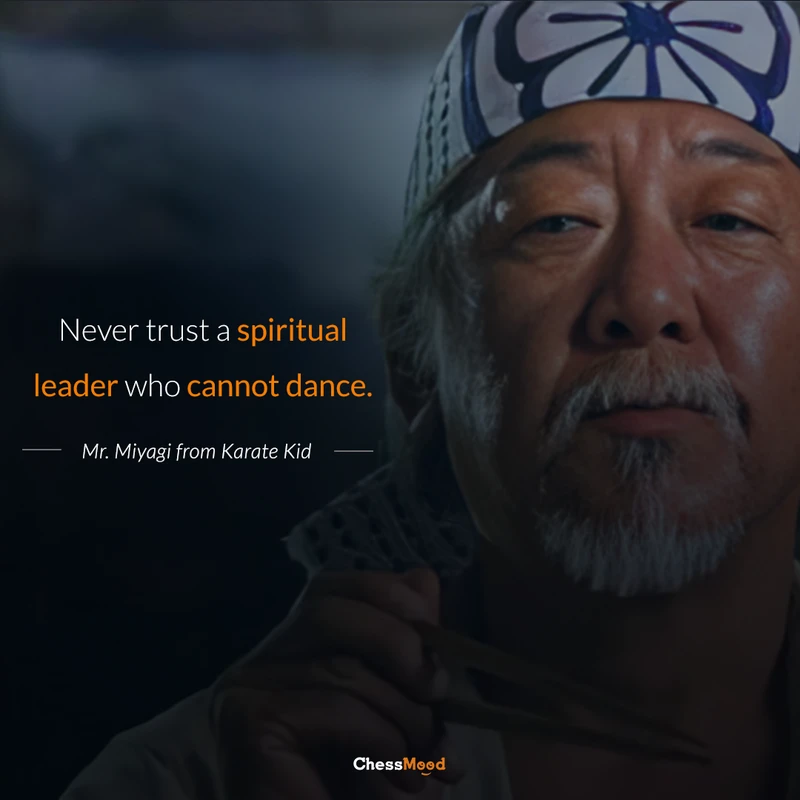
***
I know, it’s easier said than done. You don’t need to give up all 10 things on this list. Even letting go of a few will help you reconnect with the love for the game, rediscover joy, and see a shift in your mood.
And as the slogan of ChessMood says:
"Right Mood-Right Move!"
When your mood is right, the moves follow, the results improve, and soon, you’ll find yourself in a positive cycle of growth and enjoyment.
With best wishes,
For your growth and fun journey,
GM Avetik (or Avo, as my friends call me)
P.S
The article was originally published on https://chessmood.com/blog, where you’ll find over 100 other articles written by Grandmasters, who share tips from their professional journeys and how to adopt the right mindset for this beautiful game, in order to have fun and grow at the same time.
P.P.S. If you’re not a ChessMood student yet, I have three gifts for you:
- Opening Principles- The fundamentals and beyond in detail
- My 10 best games
- GM Gabuzyan’s 10 best games

You can watch all three courses for free, by creating a free account here. (Takes a few seconds)
You may also like
 GM Avetik_ChessMood
GM Avetik_ChessMood37 Lessons from Chess that Shaped My Life
A personal reflection on 37 lessons chess taught me about life, growth, and choosing better moves. GM Avetik_ChessMood
GM Avetik_ChessMood7Q Method: Your Roadmap to Formulating Chess Plans in Any Position
You'll never get stuck again, unsure of what plan to choose. GM Avetik_ChessMood
GM Avetik_ChessMoodHow to Improve Chess If You Only Have One Hour a Day | The 4 Principles
Little time for chess? Here are the 4 principles to squeeze maximum value from your training. IM theScot
IM theScotLife Hacks for Getting to IM
A post about the life-skills that help you in chess.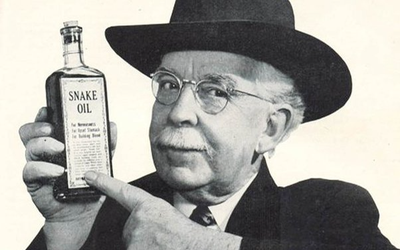 CM HGabor
CM HGaborHow titled players lie to you
This post is a word of warning for the average club player. As the chess world is becoming increasin… Zhrakos
Zhrakos